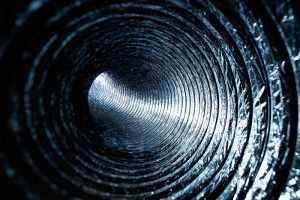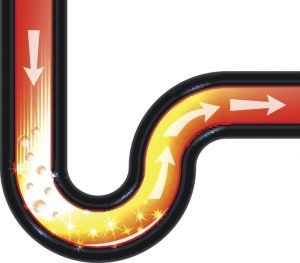Power outages are a fact of life, especially in Florida with the ever-present threat of tropical storms and hurricanes. So when your power does inevitably go out, make sure you’ve taking the proper precautions and made preparations to make it as small an inconvenience as possible.
Keep a supply of candles, matches, and a couple flashlights with fresh batteries on hand and in a place easily accessible to everyone in the household. When the lights go out, the last thing you want is to be rummaging around in the dark looking for these things.
Be aware of food safety issues. If the power outage is less than four hours, your food should be safe to eat. For outages that last longer than four hours, follow these guidelines for safety: a half-filled freezer will typically keep food safe for up to 24 hours and a tightly packed freezer up to 48 hours. If possible, pack refrigerated items that could spoil, like milk and eggs, in a cooler packed with ice. Also, try to minimize opening the refrigerator and freezer as much as possible to keep food cooler longer.
Water purification systems may not function properly during a power outage, so make sure to keep a supply of bottled water on hand for drinking, cooking, and/or personal hygiene. If you are caught in a power outage without access to bottled water, bringing water to a rolling boil for at least one minute will kill most organisms.
Consider purchasing an emergency generator. When you have an extended power outage, an emergency generator can be your best friend. You can typically purchase a basic generator that will power lights and appliances for less than $700. This article from ConsumerReports.org is a great resource for choosing the right emergency generator for you.
If you want to alleviate the power outage risk entirely, Bayonet can install a standby generator! With natural gas or LP tank access, the stand-by generator system can power essential electricity to your home for weeks at a time, provided fuel is accessible. Generators are available in multiple sizes to suit your needs. Then, your lights, water, and refrigerator will always stay on! For more, see our upcoming blogs or contact a representative today.
Power outages are certainly a nuisance, but if you plan ahead with these relatively simple preparations you can weather the storm without too much of a headache.
Continue Reading
 With the cooler weather of the winter season upon us, and regardless of the fact that our winters are much milder than those in other parts of the country, it is time to start thinking carefully about the overall condition and performance of your home heating system. Hopefully, you’ve already scheduled your annual heating maintenance in order to get your system ready for the coldest weather of the year. Even in doing so, though, you cannot make your heater 100% reliable.
With the cooler weather of the winter season upon us, and regardless of the fact that our winters are much milder than those in other parts of the country, it is time to start thinking carefully about the overall condition and performance of your home heating system. Hopefully, you’ve already scheduled your annual heating maintenance in order to get your system ready for the coldest weather of the year. Even in doing so, though, you cannot make your heater 100% reliable.
 Living in Flordia pretty much demands the use of a whole-house cooling system. Central air conditioners and air-source heat pumps make up a large majority of those cooling systems being used in homes, and they share one thing in common: the utilization of ductwork in order to disperse cooled air throughout the house. if the ductwork that this system uses is not in great working condition, then you really cannot expect great comfort to follow.
Living in Flordia pretty much demands the use of a whole-house cooling system. Central air conditioners and air-source heat pumps make up a large majority of those cooling systems being used in homes, and they share one thing in common: the utilization of ductwork in order to disperse cooled air throughout the house. if the ductwork that this system uses is not in great working condition, then you really cannot expect great comfort to follow. Whether in regards to your incredibly hard-working air conditioning system or your much-less-frequently used heater—which is still very important, remember—you want to know that your home comfort systems are operating in an efficient manner. Nobody wants to be overpaying for their comfort, right? Well, our team is here to help you heat and cool your home in a more efficient and affordable manner. And don’t worry, we’re not just going to suggest that you invest in a brand new system!
Whether in regards to your incredibly hard-working air conditioning system or your much-less-frequently used heater—which is still very important, remember—you want to know that your home comfort systems are operating in an efficient manner. Nobody wants to be overpaying for their comfort, right? Well, our team is here to help you heat and cool your home in a more efficient and affordable manner. And don’t worry, we’re not just going to suggest that you invest in a brand new system! Certain problems that you may encounter with your residential plumbing system can definitely be considered true emergencies. A damaged water well, for instance, or a burst pipe that is drenching your home or your surrounding property with water would certainly constitute emergencies. Then there are those problems that are not emergencies, but which you should nonetheless have resolved as soon as possible. Just because they don’t threaten you with imminent disaster does not mean that they are not serious.
Certain problems that you may encounter with your residential plumbing system can definitely be considered true emergencies. A damaged water well, for instance, or a burst pipe that is drenching your home or your surrounding property with water would certainly constitute emergencies. Then there are those problems that are not emergencies, but which you should nonetheless have resolved as soon as possible. Just because they don’t threaten you with imminent disaster does not mean that they are not serious.